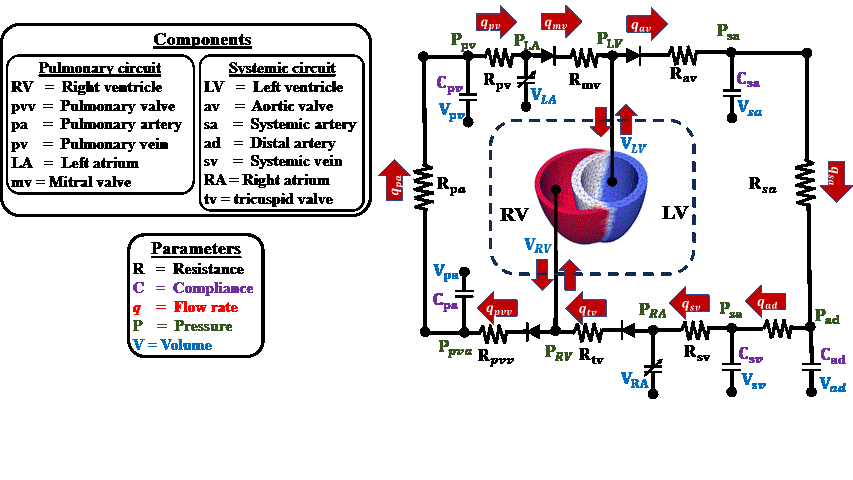Computational analysis on the mechanics of heart failure with preserved ejection fraction (HFpEF)
Research type: PhD thesis work
Official Advisors: Prof. Christopher Leonardi, Prof. Travis Mitchell and Prof. Bahni Ray.
Expert colloborators: Prof. Sheikh Mohammad Shavik and Prof. Lik Chuan Lee

Contributions
- Modified a computational framework consisting of a finite element (FE) model of the ventricle coupled with a zero-dimensional model of the closed-loop systemic circulatory system. The framework was built using the open-source FE solver FEniCS.
- Developed a simulation approach to model cardiovascular changes at various stages of exercise. The approach is used to investigate the mechanics of HFpEF exercise intolerance.
- Calibrated the computational approach to reproduce cardiac performance indices of control patients reported in the clinical literature.
- Investigated the role of pathophysiological factors such as myocardial stiffening, contractile dysfunction, ventricular remodelling, right ventricular dysfunction and pulmonary hypertension in HFpEF prognosis.
Publication outcomes
- Abraham, J. D., Shavik, S. M., Mitchell, T. R., Lee, L. C., Ray, B., & Leonardi, C. R. (2024). “Computational investigation of the role of ventricular remodelling in HFpEF: The key to phenotype dissection.” Computers in Biology and Medicine, 180, 109019.
- Abraham, J. D., Shavik, S. M., Mitchell, T. R., Lee, L. C., Ray, B., & Leonardi, C. R. (2024). “Role of right ventricular dysfunctions on bi-ventricular performance in the context of HFpEF”, 26th International Congress of Theoretical and Applied Mechanics, held at Daegu, South Korea, on 25– 30th August 2024.
- Abraham, J. D., Mitchell, T. R., Ray, B., & Leonardi, C. R. (2022). “Towards modelling the influence of myocardium stiffening on ventricular hemodynamics and its associated impact on HFpEF.” Proceedings of the 23rd Australasian Fluid Mechanics Conference, held at the University of Sydney, Australia, on 4 – 8th December 2022.
